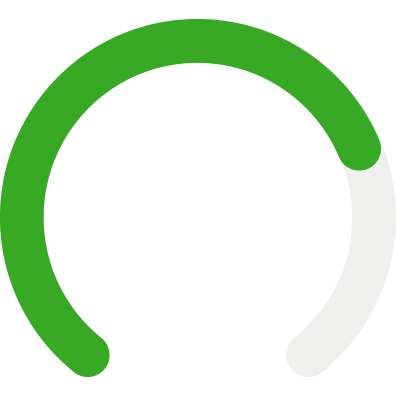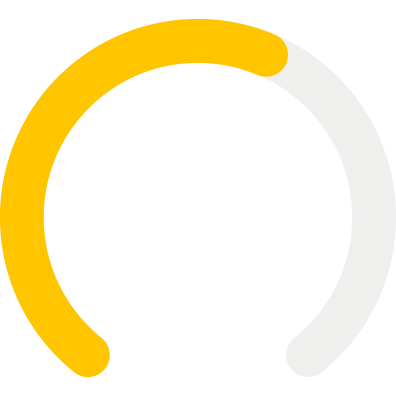What Is Drupal VPS?
Drupal VPS is a kind of web hosting solution. It merges the capabilities of the Drupal
content management system (CMS) with something called a
Virtual Private Server (VPS). To break it down, Drupal is a widely-used tool that helps people create and manage online content like websites. On the flip side, a VPS is like having a special area on a computer server just for your website. This special area gives your website its own resources and more control, making it different from standard, shared hosting. By using Drupal VPS, you combine the ease of using Drupal with the benefits of a VPS.
Why Use Drupal VPS?
There are some good reasons to pick Drupal
VPS for your website:
- Performance: With Drupal VPS, your website can work faster and better than on shared hosting. This is because it gets its own set of resources.
- Scalability: If your website gets more visitors or becomes more complex, Drupal VPS can adapt and grow with it.
- Control: With Drupal VPS, you get to decide how to set up the server, how the server works and can add extra tools or features as you need them.
- Security: Because VPS gives your website its own space, it's harder for others to mess with it.
Best Web Hosting for Drupal | Drupal Hosting Europe | Drupal Hosting USA | Drupal Hosting UK
Top Drupal VPS Hosting Deals
The Best Drupal VPS Hosting (2024 Review)
- Ultahost: Best for Cheap VPS Hosting for Drupal Websites
- Kamatera: Best Drupal Cloud Hosting ( Free Trial )
- HostPapa: Best for Install Drupal in 1-Click VPS
- Hostinger: Best Drupal Auto Installer with VPS Plan
- Contabo: Best for starting VPS pricing, +6 VPS Plans, high rated customer support available for Drupal CMS
- A2 Hosting: Top Drupal VPS 24/7 tech support
Is Drupal VPS Cloud-Based?
The answer varies. Drupal VPS could be on the cloud, but it depends on where you get your hosting from. Some companies that provide hosting will use cloud technology for their Drupal VPS services, which can give websites more room to grow and an extra layer of safety. However, others might use the traditional way where the VPS is set up on actual, physical computers. It's a good idea to ask your hosting company if they're using the cloud for Drupal VPS.
Why Not To Use Drupal VPS?
Drupal VPS might not be the best choice for everyone:
Complexity: Handling a VPS can be tricky, especially if you're new to it.
Cost: Having a VPS can be pricier than the usual shared hosting. So if you have a tight budget or a smaller website, it might not be worth it.
Resource Overkill: For very basic websites that don't get a lot of traffic, using Drupal and VPS might be too much. Regular hosting could be enough.
What Are Drupal VPS Alternatives?
If you think Drupal VPS isn't right for you, there are other hosting options:
Shared Hosting: This is good for smaller websites that don't need a lot of technical stuff.
Managed Drupal Hosting: Some companies focus on Drupal and offer special hosting services. They handle all the technical stuff for you.
Cloud Hosting: Big tech companies like AWS, Google Cloud, or Azure have hosting services that use cloud technology. This can be flexible and grow with your website.
Dedicated Servers: If your website gets a lot of traffic or needs a lot of resources, you can get a whole server just for yourself.
Conclusion
In short, Drupal VPS brings together the user-friendly Drupal CMS and the perks of a Virtual Private Server. It can be a top choice for those looking for performance and flexibility. But, always think about what your website needs, how comfortable you are with technology, and how much you're willing to spend. Whether it's Drupal VPS or another hosting method.
Drupal FAQ
What Is Drupal?
Drupal is quite the flexible content management system, based on the LAMP stack, and as a CMS, it gives you the tools to create, structure and manage content on a website.
With its modular design you can add or remove features by installing and uninstalling modules. This allows the entire look and feel of the website to be changed by installing and uninstalling themes.
What Is Drupal Used For?
Drupal is used for a number of projects and websites of:
- Colleges and Universities
- Government Agencies and Healthcare Institutions
- Non-Profits and Bloggers
Drupal also helps create digital experiences for Corporate and institutional websites, Intranets, Interactive websites, Marketing portals as well as Online directories.
Is Drupal Free?
Drupal is an open source content management system written in PHP and available under the GNU General Public License for free.
Is Drupal Easy To Use?
Learning Drupal is not a simple task, but it can be done with the proper resources.
There are multiple tutorials and resources online to help you get going. It's important to keep in mind that, when the basics of Drupal are mastered, it can be customized to meet your individual requirements.
What Are the Reasons To Use Drupal?
There are a lot of reasons to choose Drupal as your CMS platform for building websites. Some of them include:
- Building a small and simple website - you will have online editing, uniformity and a database with more complex features, all allowing you for an easier web-building experience.
- Having a reliable and flexible general-purpose site - Drupal is intended to be able to adapt as your business grows and adapts to new circumstances.
- Having free access to content - unlike other platforms which have paid packages and extensions requiring different licenses, Drupal has a less restrictive software license. Its main advantages that we mentioned before - its high security, customizability, and integration, Drupal has all the reasons you need to use it.
How to Find The Best Drupal Hosting Plan?
If you want to get the best plan that incorporates Drupal CMS, then we suggest that you use HTH.guide's Hosting Finder tool.
It collects all of your preferences in a short process and then shows you the best and latest hosting deals, using advanced algorithms to gather this data for you to choose from.


 937
937
 4.7
Positive
4.7
Positive
 Positive
Positive


 353
353
 4.3
Positive
4.3
Positive
 Positive
Positive


 2.5k+
2.5k+
 4.8
Positive
4.8
Positive
 Positive
Positive


 25k+
25k+
 4.6
Positive
4.6
Positive
 Positive
Positive


 4.4k+
4.4k+
 4.0
Positive
4.0
Positive
 Positive
Positive


 2.6k+
2.6k+
 4.5
Positive
4.5
Positive
 Positive
Positive


 2k+
2k+
 4.8
Positive
4.8
Positive
 Positive
Positive


 2.2k+
2.2k+
 4.0
Positive
4.0
Positive
 Neutral
Neutral


 1.4k+
1.4k+
 4.5
Positive
4.5
Positive
 Positive
Positive







